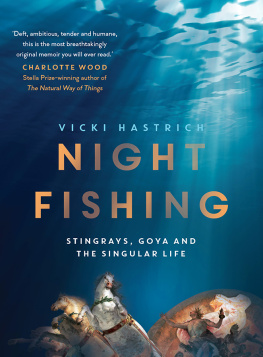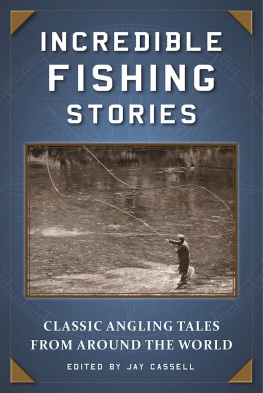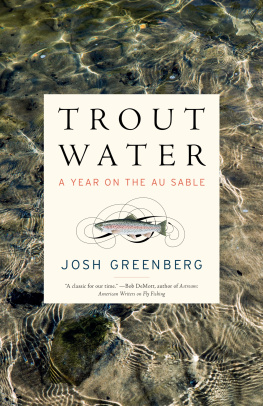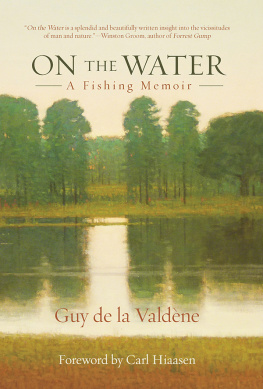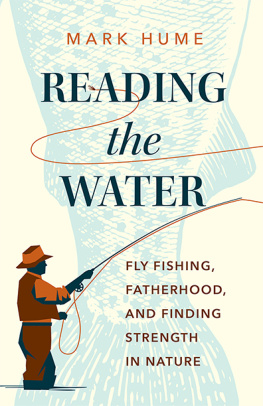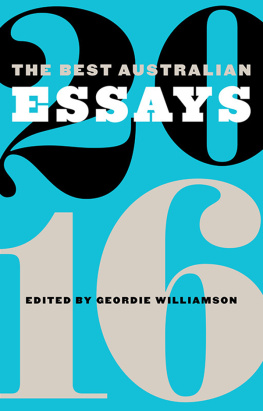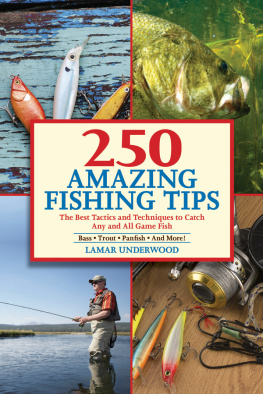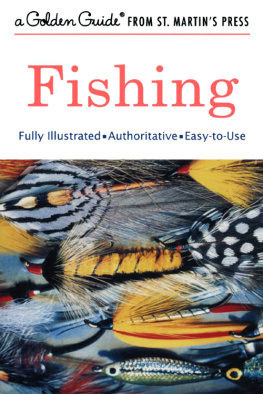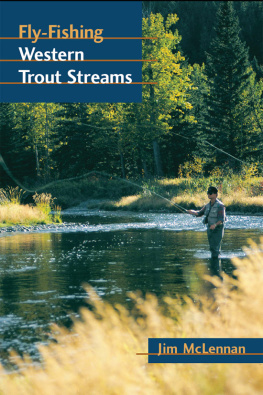
Praise for Night Fishing
In this natural history of the author herself, we travel gently through childhood and family, grief, love and solitudeand her spellbinding twin obsessions with art and the natural world. It is the work of a questing, roving intellect and a rare humility, and Hastrichs sheer joy in language infuses the whole with a deliciously sly, intelligent humour. Id liken her to an antipodean Annie Dillard with a fishing rod in one hand and the whole of western art history in the otherexcept there simply is no other writer like Hastrich. This book will tell you things you never knew about your world and yourself, and you will never forget it.
Charlotte Wood, author of The Natural Way of Things
I read Night Fishing in one greedy gulp, marvelling at its intelligence, humour, beauty and wonder. Immediately Id finished, I began again, reading each meticulous essay with care, taking my time, wantingneedingto attend to the words in the way that Vicki Hastrich attends to her world. She sees every overlooked detail. She listens for the quiet thrum under the everyday. She invites us, via great art or small fish, into the depths of her remarkable and unique world view. Her personal vision is both intimate and epic. Every essay relates an episode observed and considered with writerly precision and delicacy. Night Fishing is a unique memoir from a powerful, tender and insightful writer. Its the book I want everyone I love to read. Its a book I will never let go. Vicki Hastrich depicts a life lived with eyes and mind wide open. She even made me want to go fishing!
Ailsa Piper, co-author of The Attachment
Loved thisa gentle, meditative surge, a memoir which never strays too far from that big collective unconscious, the sea. Here the sea is night-fear, is stumps in the water mistaken for doughty swimmers, is secrecy, is revelation. On the journey, there are pearlsa mother doing crosswords in an austere billiard table showroom, and so passing the ocean of words to her daughter; the numbfish, a death harbinger; Galileo painting the waxing and waning moon as the worlds water heaves from its pull; Dasyatis brevicaudata caught in the Garden Island graving dock, destined to glide out their graceful days in the Taronga Park Aquarium. And childhood, the most sparkling and scary sea of all.
@tomsbooks
Praise for The Great Arch
I gulped down The Great Arch in two long sittings, cancelling a coffee date because I didnt want to put it down. Hastrich had me hooked from the opening pages I feel like climbing the bridge and yelling out how good it is.
Christos Tsiolkas, author ofThe Slap
a story of imagination, loneliness, obsession and love A deeply tender, very funny and sad and beautiful book.
Charlotte Wood, author ofThe Children
as airy, soaring and magnificent as the bridge itself.
Michelle de Kretser, author ofThe Lost Dog
Praise for Swimming with the Jellyfish
Seemingly effortless, completely endearing, this novel is an absolute joy.
Debra Adelaide, The Sydney Morning Herald
dazzling in its surprising juxtapositions of human types and in its colloquial flashes
Michael Sharkey, The Australian
A deceptively clever first novel.
Ian McFarlane, The Canberra Times
VICKI HASTRICH is a Sydney writer. She started out with the ABC as a TV camera operator and became an assistant director in drama. When she began writing, a range of jobs followed, including warehouse hand, picture researcher, factory worker, archivist and oral historian. Along the way she picked up a Doctor of Arts degree from the University of Sydney. Her two novels, Swimming with the Jellyfish and The Great Arch, were published in 2001 and 2008 respectively. She has recently turned to non-fiction. Things Seen, a cornerstone essay in Night Fishing, was first published in The Best Australian Essays 2016.
First published in 2019
Copyright Vicki Hastrich 2019
All rights reserved. No part of this book may be reproduced or transmitted in any form or by any means, electronic or mechanical, including photocopying, recording or by any information storage and retrieval system, without prior permission in writing from the publisher. The Australian Copyright Act 1968 (the Act) allows a maximum of one chapter or 10 per cent of this book, whichever is the greater, to be photocopied by any educational institution for its educational purposes provided that the educational institution (or body that administers it) has given a remuneration notice to the Copyright Agency (Australia) under the Act.
pp. : A Bigger Message: Conversations with David Hockney by Martin Gayford, text 2011 Martin Gayford. Printed by kind permission of Thames & Hudson Ltd, London.
pp. : A kind of sharing from Keeping a Rendezvous John Berger 1992, and John Berger Estate.

Allen & Unwin
83 Alexander Street
Crows Nest NSW 2065
Australia
Phone: (61 2) 8425 0100
Email:
Web: www.allenandunwin.com

ISBN 978 1 76087 550 3
eISBN 978 1 76087 121 0
Set by Midland Typesetters, Australia
Cover design: Christabella Designs
Cover photos: Quentin Houyoux/Getty (water); Bildarchiv Monheim GmbH/Alamy (Giovanni Battista Tiepolo)
For Di
Were going to Woy Woy.
the sea is the first home of the mind
Peter Godfrey-Smith, Other Minds
Contents
I learnt the word trespass at an early age. Not from Sunday school, although I heard it thereforgive us our trespassesbut from signs hung on oyster leases.
Trespassers will be prosecuted.
In my head this meant they would be shot. Crazy Shackleton had a gun and we believed hed use it. Reach a hand in through the watery fence line of any of the leases he farmed and hed blow your head off.
Shackleton lived in a closed-up cottage behind a rank wall of lantana and morning glory. Angry dogs to match their angry master barked from somewhere out the back but were never seen. Shackleton was not much seen himselfat least by me. But those signs were everywhere. Also: Keep out. Some were hand-painted and some stencilled, but whether the lettering was industrial or mad and fierce, they fairly screamed: Mine, mine.
Somehow they made the place even better. And, oh God, that place was good.
We went to this spot on the New South Wales Central Coast on semi-regular holidays with my parents best friends and their three children. Uncle Clive and Aunty Pam, as they were to us, co-owned the house with Clives sister-in-law. His mother had bought the water-access-only house on the Brisbane Water estuary in the 1930s. It was four rooms, had no electricity or running water, and was furnished with stuff that would already have been old in the thirties, a few key pieces of which were particularly alluring to us kids: a gramophone player the size of a fridge and six records, five of which we broke; a piano, out of tune, with hinged brass candlesticks that folded out either side of a music ledge; and a medicine cabinet full of strange little jars and bottlesipecac, gentian violet and ointments ancient enough to have come from a pharaohs tomb, all of it probably lethal. There were many kerosene lamps of various shapes and sizes on a shelf in the kitchen; on the same shelf was an alarm clock made out of a tuna tin. In the front room there were holes in the floorboards that one could lie down beside and put an eye to; dark shapes in the gloom included that of a claw-footed bath. Thankfully we washed in a big enamelled basin placed on the kitchen floor, because the idea of bathing in the dark under the house was beyond terrifying.
Next page
